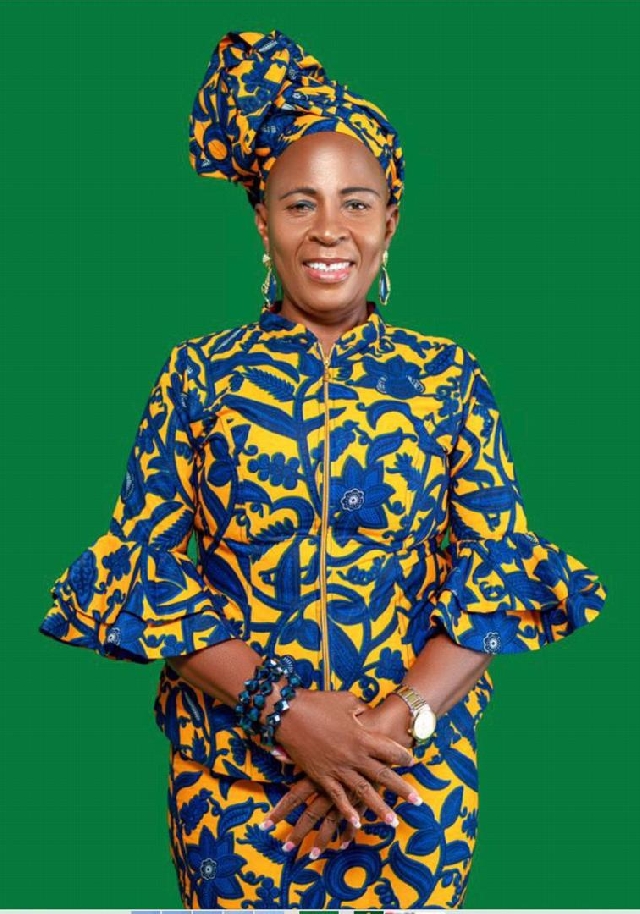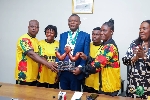RE: EC calls for framework to regulate social media use during election
 Comfort Doyoe Cudjoe-Ghansah, MP of Ada Constituency & Deputy Minority Chief Whip of Parliament
Comfort Doyoe Cudjoe-Ghansah, MP of Ada Constituency & Deputy Minority Chief Whip of Parliament
In an age where information and communication are primarily driven by digital platforms, the request by the Electoral Commission of Ghana to limit the use of social media during elections raises important questions about the essence of democratic processes. The commission's concerns about curbing false news are valid, but their approach, if misguided, could do more harm than good. This is more so as over 8.8 million Ghanaians basically get their daily information on social media.
The role of social media in contemporary democracies is undeniable. It has emerged as a powerful tool for political engagement, connecting citizens with their leaders and fostering discussions on critical issues. While there is no denying the potential for misinformation to spread, stifling social media is not the answer. There are critical reasons why the call by the Electoral Commission cannot be glorified and I shall endeavor to briefly touch on few of them.
TRANSPARENCY AND ACCOUNTABILITY:
Firstly, social media plays an invaluable role in ensuring transparency and accountability during elections. It provides an open platform for citizens to share real-time observations, question irregularities, and even expose electoral misconduct. By limiting social media, we risk diminishing the ability of citizens to be the watchdogs of our democracy, especially during elections.
ACCESS TO INFORMATION:
In a country where access to information is fundamental to the exercise of voting rights, social media becomes a vital source of data on candidates, policies, and political events. It empowers voters with the ability to research, discuss, and make informed choices. Restricting social media would deprive many of the information they need to vote wisely.
FREE EXPRESSION:
Crucially, social media serves as an arena for the free expression of political beliefs. In a democracy, the exchange of ideas, opinions, and criticisms should be encouraged, not curtailed. It is the essence of democratic discourse and should not be stifled by regulatory measures that limit expression.
While the Electoral Commission's concerns about false news are genuine, a more effective strategy is to educate the public about media literacy and critical thinking. Promoting digital literacy programs can empower citizens to discern reliable information from misinformation. Additionally, the media and civil society play pivotal roles in fact-checking and holding purveyors of false news accountable.
Ultimately, a trustworthy and credible electoral commission should focus on building public trust through transparency, efficiency, and impartiality. Curtailing social media is not the answer to rebuilding credibility. Instead, the commission should work to ensure that electoral processes are fair, transparent, and secure, and in doing so, foster trust in the electoral system.
In the matter of the 2020 election results declaration, the electoral commission had to announce the result more than once, raising concerns over the credibility of the result. But for social media, how would the over 8.8 million Ghanaians who are on social media get access to these inconsistencies.
In a democracy, the free exchange of ideas and information is at the core of a healthy political system. Social media plays a pivotal role in upholding these principles. Rather than suppressing it, we should strive to harness its potential for the benefit of our democracy while simultaneously working to combat false information through education and responsible journalism. Our commitment should be to empower citizens with information and protect their rights, not to limit their access to a powerful tool for civic engagement.
Signed:
Comfort Doyoe Cudjoe-Ghansah
(MP, Ada Constituency & Deputy Minority Chief Whip of Parliament)
Source: classfmonline.com





